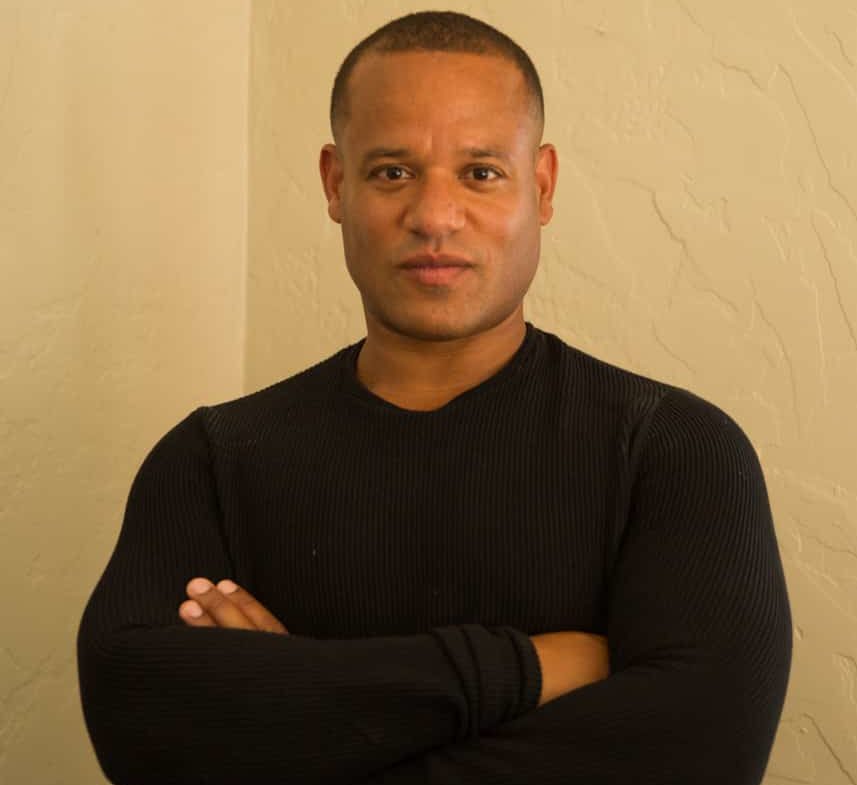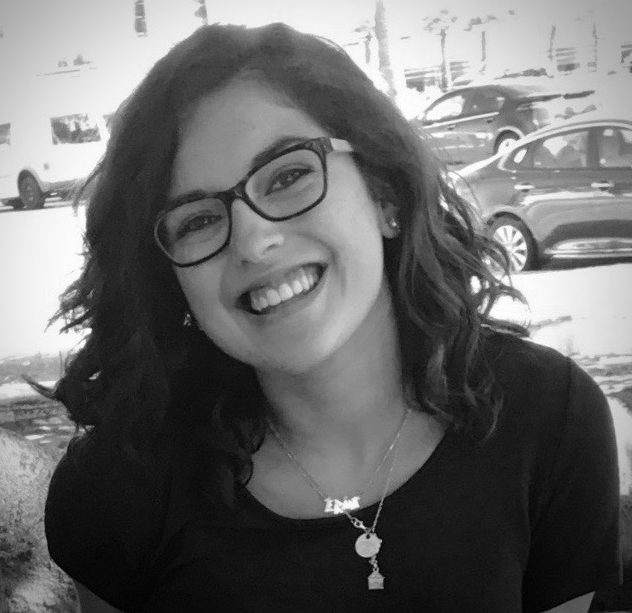 Gamal J. Palmer; Photo by ARC Photography/ courtesy of Palmer.
Gamal J. Palmer; Photo by ARC Photography/ courtesy of Palmer. Gamal J. Palmer is an actor, storyteller, activist, TedX speaker, lecturer and the current senior vice president at The Jewish Federation of Greater Los Angeles. He is also Black, Jewish and gay. While all of these intersections form his identity, he told the Journal no one part is more important than another.
Palmer said that while he was growing up, he was tokenized as “really the only Black Jew” in his Philadelphia neighborhood. Even though he was born Jewish and had a bar mitzvah, he still was constantly questioned when entering Jewish spaces. He said white Jews are never asked, “How are you Jewish?”
“On the surface, I think it seemed fine but internally, it was really hard to always answer questions, having your presence always being questioned,” Palmer said. “You get to a point where you’re like, ‘Am I even Jewish? Am I supposed to be here?’ Then you try really hard to prove that you belong somewhere. To be a Black person in America, in general, you actually have to prove that you have a right to be there.”
Palmer turned to theater as a way to discuss and address racism and other “complicated challenges” taking place around the world. His first acting gig was in the eighth grade when he taught theater exercises to prison inmates.
“Theater is such powerful work to be doing at such a young age,” he said. “[Inmates] learned problem solving to either talk about stresses and challenges surviving prison or to think about how they want to be when they get out of prison.”
Theater also became a vessel for Palmer to fight for social justice. After graduating from the University of Miami with a bachelor’s degree in liberal arts and leadership development, he attended the Yale School of Drama, earned his Master of Fine Arts in acting and business organization and entertainment producing, and created programs around the world that focused on discussing religion and race.
“You get to a point where you’re like, ‘Am I even Jewish? Am I supposed to be here?’ ” — Gamal J. Palmer
He said the coronavirus and quarantine have given him an opportunity to reflect on his relationship with his identities as “a gay Jewish man of color” facing racism and discrimination. “It’s really deep. I have learned a lot. I have been tested and pushed to be better to elevate my standard of excellence,” he said. “I have noticed that I have had to swallow a lot more than I was aware [of], in terms of being questioned [and] being diminished in certain ways .… people of color are walking around with a distinct experience that needs to not only be acknowledged but needs to be handled.”
He added that racism hasn’t just followed him in the Jewish community, but also in the LGBTQ+ community. It’s unfortunate, he said, that many queer folks neglect the work of Black trans women who fought for gay rights during the Stonewall riots, which is where the gay rights movement originated.
“I often have felt weird about claiming [to be] gay because doing so often signifies that I’m part of mainstream gay culture. And I’m not,” Palmer said. “That culture is dominated by a Eurocentric and Caucasian mentality and approach. While I grew up in gay culture, I’ve never felt 100% comfortable. And there is a lot of racism and colorism within mainstream gay culture. I get so sad when gay men complain about the movement that’s happening now. It’s as if they have no idea that they have their rights because people marched in the streets, broke windows, stopped traffic [and] later in the movement, flooded the New York stock exchange at that same time to fight for gay rights.”
Palmer is thankful for groups such as JQ International, Svara and Keshet that make diverse Jewish LGBTQ voices feel safe and welcome. In addition, he said, they put themselves on the map for making the Jewish community confront LGBTQ biases.
He added these organizations and resources are important because they allow LGBTQ people to feel comfortable, including when they come out. When Palmer came out at 14, his mother said, “I thought this would happen. I just didn’t think it’d be so soon.” “It was really hard,” Palmer said. “It was hard for my mom to accept it for a very long time …. It’s not that she was ever homophobic. I think it’s just one of those things like many parents of her generation. You can have gay friends, gay colleagues or students or mentees but when it shows up in your own house, you’re really forced to grapple with it.”
While admitting that society still needs to tackle anti-Semitism, racism and homophobia, Palmer said he uses his intersectionality to provide insight in whatever room he is in. Over the past few weeks, he has held reflection sessions for people.
“Because I can share certain stories that are authentically mine that are even contradictory to each other, that is a particular position that I can create and facilitate with authority,” he said. “I think people are craving that in this moment.”
However, he added that he doesn’t welcome potential allies complaining about the hard work ahead in any field of social justice. “Let’s do the work that it takes so that it’s not hard anymore,” he said. “My concern is that people don’t realize this is not something short term …. In [Robin DiAngelo’s 2018] book ‘White Fragility’ … being an ally is a title that is earned. It’s not something that you label yourself. I like that because it’s aspirational …. I don’t get to decide I’m an ally. I have to work hard to be accepted by that group. When I am an ally, it’s an ongoing job.”






















 More news and opinions than at a Shabbat dinner, right in your inbox.
More news and opinions than at a Shabbat dinner, right in your inbox.